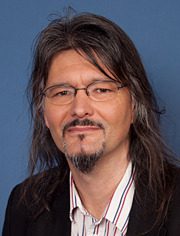
Location Konya, Turkey
Years 2021-2023
Director
John Wainwright
Durham University
Funding The British Academy, ‘Humanities and Social Sciences Tackling Global Challenges’ Scheme
Fragile Landscapes: Past, Present and Future of Sustainable Water Management on the Konya Plain, Turkey
Changing social, economic and environmental conditions significantly affect the availability and quality of water, thus affecting people’s health, wellbeing and access to food. This project focuses on the Konya Plain to evaluate how these changes have taken place over the last 500 years, and what is likely to occur over the next decades. With the collaboration of historiographers, geographers, archaeologists, geo-archaeologists, historical architects, social anthropologists, geological and hydraulic engineers, the project brings a comparative understanding of what sustainable water management is and how it has occurred at various times and places to make suggestions of how to mitigate future water risk, both for the study area and more generally. It does that investigation at three different time frames.
For the period from the 16th to the 20th century CE, information from Ottoman taxation records is used to reconstruct past land use and thus estimate water requirements. The archival records provides a complete snapshot of the number of taxpayers and the balance of crop types and animal husbandry. Data from different dates gives the opportunity of estimating changing patterns through time. In addition, satellite and other imagery are used to map past water-management features and to attempt to discover the locations of subsequently abandoned villages and water harvesting features, supplementing and complementing the information from the Ottoman taxation records.
For the period from the 20th century to the present day, government records of land use are combined with an ethnographic approach to understand how and why water has been and continues to be used. This includes an investigation through semi-structured interviews with local producers and village leaders (mukhtars), meetings with farmers’ associations and regional institutions and on-site walking tours with locals where the water scarcity has shown itself in agricultural production. The tension between socially meaningful practices and the challenges experienced in current water management will be central to this exploration.
In order to look to the future, up to 2100, the team is using climate and socio-economic projections together with environmental data to predict how water use will change river flows and groundwater levels. To ensure confidence in these predictions, the hydrological model will be tested against estimates for the Ottoman period and the available measurements for the later 20th century.
Bringing together these different lines of evidence, the aim is to consider how past experience can be used to support a sustainable future use of water in the region.

Lutgarde Vandeput
BIAA
Co-Investigator
Gianna Ayala
University of Sheffield
Co-Investigator
Faruk Ocakoglu
Eskisehir Osmangazi University
Co-Investigator
Dan Lawrence
Durham University
Co-Investigator
Davide Motta
Northumbria University
Co-Investigator
Ender Peker
BIAA, Middle East Technical University
Collaborator
Anlı Ataöv
Middle East Technical University
Collaborator
Michele Massa
University of Chicago
Collaborator
Meltem Uçar
Mersin University
Collaborator
İlker Yiğit
Burdur Mehmet Akif Ersoy University
Collaborator
Olgu Yurttaş
Ankara University
Collaborator
Sıla Özkavaf
İzmir Institute of Technology
Research Assistant